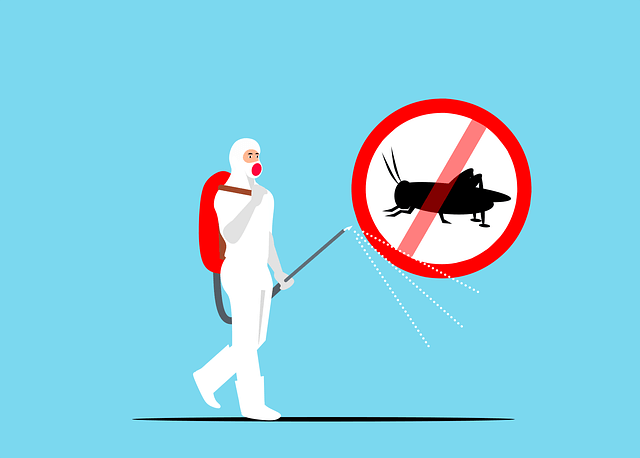Bed bugs are the last thing anyone wants to consider when trying to get some shut-eye. But there is a widespread problem with bed bugs.
Statistically, one in five Americans has either personally encountered bed bugs in their own homes or been in contact with someone who has.
Here, we’ll discuss some of the most helpful info to eliminate bugs in the bedroom.
What are Bed Bugs?
Bed bugs (Cimex lectularius) are flat, invading insects that feed on dozing humans and animals.
These repulsive insects’ range in length from 1 to 7 millimeters and are reddish-brown in color. Although they require blood to survive, vampires can go several months without food.
Due to the fact that a healthy female bed insect can produce up to 500 eggs in her lifespan, you can experience a severe infestation within weeks.
What Attracts Bed Bugs to Your Home?
Many people believe that bed bugs prefer filthy environments and are drawn to grime. This is the reason why many people believe that staying in an inexpensive hotel guarantees bed bugs.
As it turns out, this is merely a widespread misconception.
Bed bugs are not attracted to filth or rot. In fact, they can persist in any environment so long as they have access to the one item they require for survival: Blood.
In contrast to mosquitoes and fleas, which also feed on blood, bed bugs cannot flee or survive on their hosts. They must instead conceal themselves near their food source and wait for supper to become available.
Thus, bed bugs are extremely adaptable. As long as they have access to regular blood feeds, they can survive anywhere, from the upholstery of a settee to the library carpet.
Here are the most common causes of bed bugs:
- Buying and taking home used furniture. Bed bugs can reach your home via the baggage, purses, suitcases, used sofas, and more.
- Multi-unit cross-contamination. Hotel and condo bed bugs can spread.
- Infection from a motel, lodge, or hostel. You may bring bed bugs home in your clothes or baggage.
- Guests may bring bed bugs to your home without even knowing.
What are the Signs of a Bed Bug Infestation in Your Home?
Bed bugs are tiny and hard to find at first. Look for these clues of bed bugs:
Evidence of the presence of bed bugs, such as discarded skins or black droppings, can be found in mattress seams and other locations.
Bites, welts, or lumps on the body in the morning after getting out of bed.
There are small blood traces on your linens and pillowcases.
The presence of an objectionable musty odor in the room or around the bed, which some have compared to “locker room odor.”
Realizing that you have bed bugs can be frightening, but the first step in managing them is recognizing them.
How to Get Rid of Bed Bugs: 3 Steps to Take Right Now
Once a bed insect infestation has been identified, it is time to take action. Hiring a professional bed bug exterminator is the quickest and most effective method to get clear of bed bugs.
Follow the procedures below to eliminate the pests:
Step 1: Identify infested areas.
Bed bugs propagate rapidly, so finding them early is crucial. Check the following areas for bed bugs:
- The mattress/box spring gaps.
- Bedframe-headboard cracks.
- Your seat pillows and seams.
- At the carpet-wall gap.
- Couches, accent seats, and sofa joints.
Examine each spot with a torch. Find tiny, dark, rust-colored droppings, live bedbugs, or pale golden eggs.
Step 2: Kill the bed bugs.
Now is the time to eradicate bed bugs once and for all. This is how:
3 Natural Home Remedies
1. Get rid of bed bugs naturally with heat or cold
Bed bugs in mattresses and other critical areas can be killed by temperature. Dry the goods on high heat for 30 minutes after the wash cycle. Place impacted goods in a fridge at least 0 degrees Fahrenheit. To kill all bed bugs, leave them for four days.
2. Use steam
Steam beds, sofas, and other hiding spots to kill bed bugs without an exterminator.
3. Cover mattresses
Buy bedbug-proof mattresses and box spring covers. These covers kill bed bugs inside and keep them out when closed up. They also block bed bugs while you sleep.
Conventional Bed Bug Treatment
Use an insecticide
Insecticides can kill bed bugs if home methods fail. Bed bug pesticides include pyrethrins and pyrethroids. These fast-acting herbicides are low-toxic to humans and dogs.
Step 3: Hire a Bed Bug Exterminator
Hiring a pest control in Nashville, such as Waynes Pest Control, is the quickest and most effective method to get clear of bed bugs.
Our team will assess your bed bug problem, devise a plan to eliminate all bugs and return peace and serenity to your home.
Conclusion
Bed bugs do not transmit illness. Fleas can spread plague and typhus. Fleas and bed bugs are disgusting and a nuisance. Bed bugs and fleas can usually be eliminated with easy home remedies.
